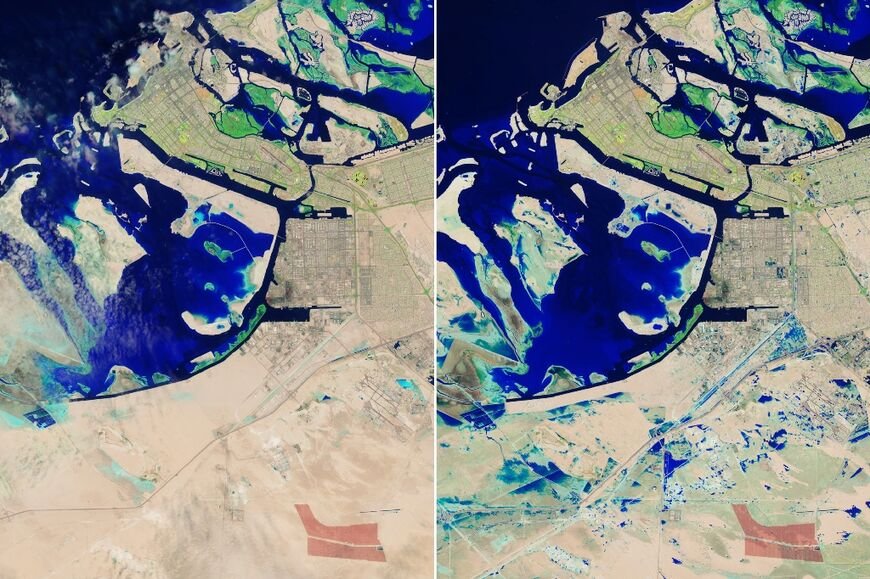An expert panel of scientists attributed the severity of the storms to global warming brought on by fossil fuel emissions.
An expert panel of scientists attributed the severity of the storms to global warming brought on by fossil fuel emissions. Last week, the United Arab Emirates (UAE) and Oman were severely battered by heavy rains, which led to fatalities and widespread flooding.
The World Weather Attribution (WWA), an international consortium of scientists specializing in investigating extreme weather events, released a study suggesting that while climate change stemming from fossil fuel emissions is the likely cause of the extreme rainfall, definitive attribution remains challenging.
According to the study compiled by 21 researchers from around the world, rainfall during El Nino years in the affected region has become 10-40 percent heavier, with warming induced by burning fossil fuels identified as the primary factor behind this increase.
Sonia Seneviratne, a member of WWA and professor at Zurich’s ETH university, emphasized that the floods in the UAE and Oman highlight the growing threat posed by exceptional weather events in traditionally arid regions as the planet continues to warm.
The study analyzed historical weather data and climate models, revealing that extreme rainfall events have become more intense with rising temperatures, consistent with the principle that warmer air can hold more moisture.
The devastating impact of the storms was felt in both Oman and the UAE, where a total of twenty-one and four people lost their lives, respectively. In the UAE, the unprecedented rainfall marked the heaviest on record in 75 years, disrupting daily life and causing significant damage to infrastructure.
The aftermath of the storms led to severe disruptions in the UAE, with major roads blocked, power outages, and thousands of flight cancellations and diversions at Dubai Airport, the world’s busiest hub for international travelers.
In response to the crisis, UAE Prime Minister Sheikh Mohammed bin Rashid Al Maktoum announced a substantial financial package aimed at repairing homes and addressing the aftermath of the floods.
Friederike Otto, a climatologist and member of WWA, underscored the urgent need to transition away from fossil fuels, noting that despite global agreements, new oil and gas projects continue to be developed, perpetuating the cycle of climate change-induced extreme weather events.
The findings of the study echo a growing consensus among scientists regarding the link between fossil fuel emissions and the exacerbation of extreme weather events, urging policymakers and governments to take decisive action to mitigate the impacts of climate change.
